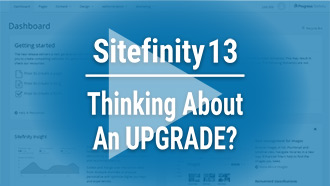Web Smarts - Business Savvy
We’ve been building websites since 1998
We are trusted advisors to Over 50 Active Clients within several industries including associations and nonprofits, healthcare, financial services, retail, B2B and more.

We Are
Trusted
Partners
After we deliver a quality website on time and within your budget, we will be there for when it really counts. We will be proactive, consultative and strategic after we launch your website.

We Are
Integration
Experts
We’ve integrated with virtually every AMS system on the market as well as most LMS, publication, advocacy and career center applications. Our company was founded on custom development.

We build websites that are easy to edit, manage and design using the best content management system on the market, Sitefinity CMS.
We Provide A Full Spectrum Of Services
Our Clients Are Our Partners....
John Wurm

The team at Vanguard helped us think about our digital presence from the perspective and needs of our users, while holding true to the values our organization espouses.
Connect With Us
Improve Your Webcopy

The
Vanguard View
Technology articles about one topic from the perspective of Leadership, Marketing and IT professionals .
Better Segmentation Means Better Results
Seek Greater Clarity and Differentiation in Your Audience Segments
The point of a website personalization strategy is to create unique user experiences so that each visitor feels like his or her individual needs and interests are being addressed. Therefore, it stands to reason that the better you can segment your audience, the better the results you'll achieve.
For years, many organizations took a rather simplistic approach to website personalization. Perhaps a greeting for returning visitors ("Hello Name!") or maybe some A/B promotional messaging was about as sophisticated as it got. But the success of brands using sophisticated personalization tactics —such as Amazon, Netflix, and Facebook —has many rethinking their approach and wanting to do more with their websites.
It's increasingly clear that this is the right approach. Consider the following: an Epsilon survey of 1,000 consumers between 18 and 64 years old found 80% of people surveyed said they are more likely to do business with a company that offers personalized
experiences; 90% of respondents found personalization appealing.
Overcoming Obstacles to Personalization
Perhaps the biggest challenge for marketers pursuing a website personalization strategy is gathering the data and insights needed to create distinct and meaningful audience segments. At Vanguard, we've found it best to start with the information you have internally, then add on additional group characteristics from other information sources.
Your customer or membership database likely contains a wealth of demographic information, such as age, gender, length of engagement, and past activity. Similarly, Google Analytics and other tracking software can provide insights into user journeys and popular website sections.
This data will provide the initial parameters for your audience segments. If you have the time and budget, you should consider augmenting internal data with other sources of information, such as user interviews or focus groups. Similarly, you can encourage website users to create an online profile and details their areas of interest.
It's important that you don't get locked in to your initial segmentation strategy. Your audience groups are likely to evolve — and expand — as you gain additional insights and layer in more data.
Bringing the Data to Life
Once you've identified and defined your audience segments as much as possible, we recommend creating personas for each group. Personas are fictional characters that embody the characteristics and lifestyle of a targeted audience segment. Personas not only serve to guide your content strategy for each audience segment, but also help ensure a consistency in messaging between your website and other marketing channels.
Your content should try to match the specific needs and interests of your audience segments as closely as possible. You can do this in two ways:
- First, you can reframe content so that the information speaks more directly to different segments.
- Second, you can use your content management system to serve up just the content and resources most likely to align with the interests of a specific group.
Reaping the Rewards
Although this might seem like a lot of work, the return on your efforts will be worthwhile. A 2019 SmarterHQ survey found 72% of consumers only engage with marketing messages that are customized to their specific interests. Similarly, research by Maritz Motivation Solutions and researchers with the Harvard Business School found consumers were 40% more likely to click on items recommended based on information they'd shared with the brand, and they spent 31% more time on the product page.
Website personalization enables you to move closer to the goal of creating unique user experiences. The better you are at defining your audience segments and tailoring your messaging to each them, the more likely you are to see vast improvements in user engagement and driving revenue growth.
Vanguard Tips & Tricks
We provide helpful hints you never knew you needed for our clients. Check out "Vanguard Tips & Tricks" to learn quick and simple hacks to make managing your website easier than ever.
Better Segmentation Means Better Results
Seek Greater Clarity and Differentiation in Your Audience Segments
The point of a website personalization strategy is to create unique user experiences so that each visitor feels like his or her individual needs and interests are being addressed. Therefore, it stands to reason that the better you can segment your audience, the better the results you'll achieve.
For years, many organizations took a rather simplistic approach to website personalization. Perhaps a greeting for returning visitors ("Hello Name!") or maybe some A/B promotional messaging was about as sophisticated as it got. But the success of brands using sophisticated personalization tactics —such as Amazon, Netflix, and Facebook —has many rethinking their approach and wanting to do more with their websites.
It's increasingly clear that this is the right approach. Consider the following: an Epsilon survey of 1,000 consumers between 18 and 64 years old found 80% of people surveyed said they are more likely to do business with a company that offers personalized
experiences; 90% of respondents found personalization appealing.
Overcoming Obstacles to Personalization
Perhaps the biggest challenge for marketers pursuing a website personalization strategy is gathering the data and insights needed to create distinct and meaningful audience segments. At Vanguard, we've found it best to start with the information you have internally, then add on additional group characteristics from other information sources.
Your customer or membership database likely contains a wealth of demographic information, such as age, gender, length of engagement, and past activity. Similarly, Google Analytics and other tracking software can provide insights into user journeys and popular website sections.
This data will provide the initial parameters for your audience segments. If you have the time and budget, you should consider augmenting internal data with other sources of information, such as user interviews or focus groups. Similarly, you can encourage website users to create an online profile and details their areas of interest.
It's important that you don't get locked in to your initial segmentation strategy. Your audience groups are likely to evolve — and expand — as you gain additional insights and layer in more data.
Bringing the Data to Life
Once you've identified and defined your audience segments as much as possible, we recommend creating personas for each group. Personas are fictional characters that embody the characteristics and lifestyle of a targeted audience segment. Personas not only serve to guide your content strategy for each audience segment, but also help ensure a consistency in messaging between your website and other marketing channels.
Your content should try to match the specific needs and interests of your audience segments as closely as possible. You can do this in two ways:
- First, you can reframe content so that the information speaks more directly to different segments.
- Second, you can use your content management system to serve up just the content and resources most likely to align with the interests of a specific group.
Reaping the Rewards
Although this might seem like a lot of work, the return on your efforts will be worthwhile. A 2019 SmarterHQ survey found 72% of consumers only engage with marketing messages that are customized to their specific interests. Similarly, research by Maritz Motivation Solutions and researchers with the Harvard Business School found consumers were 40% more likely to click on items recommended based on information they'd shared with the brand, and they spent 31% more time on the product page.
Website personalization enables you to move closer to the goal of creating unique user experiences. The better you are at defining your audience segments and tailoring your messaging to each them, the more likely you are to see vast improvements in user engagement and driving revenue growth.
Case Studies
Vanguard conducts thorough preliminary investigative work to ensure your website is built to cater specifically to your target audience and meet your organization’s goals. Check out some of the case studies on some of our most recent client success stories.
What Can Vanguard Do For You?
As your organization grows and evolves, your website should as well. Whether you are looking to generate more traffic, implement custom functionality, mobile compatibility, integrate your systems, or give your site a complete redesign, Vanguard Technology is your go-to web partner. Reach out to us with your current concerns with your website, and our experts will happily provide a solution.










Leave a commentOrder by
Newest on top Oldest on top